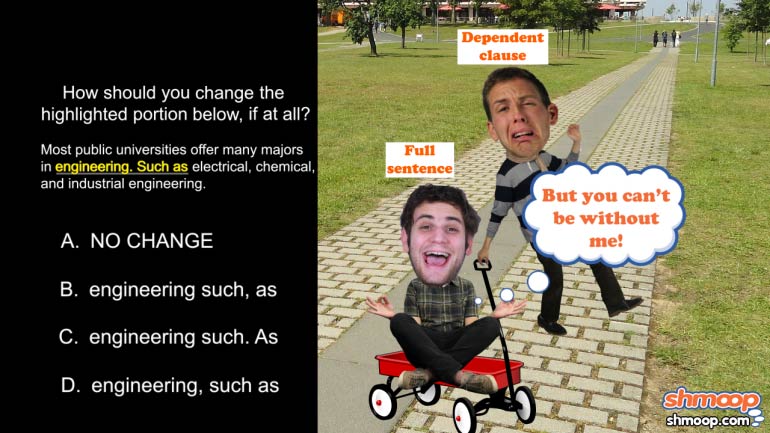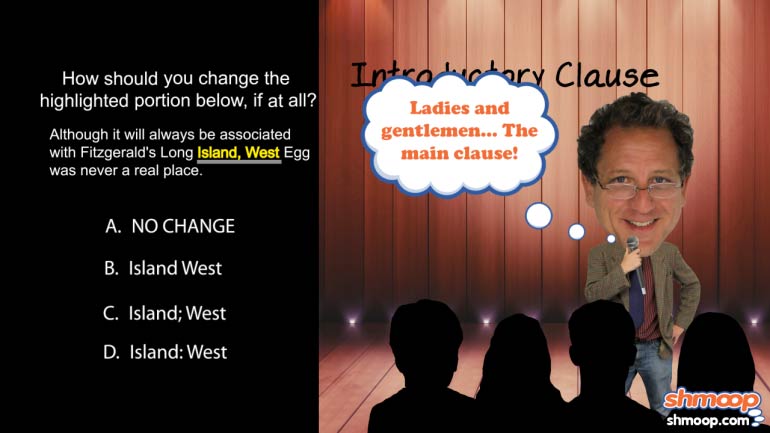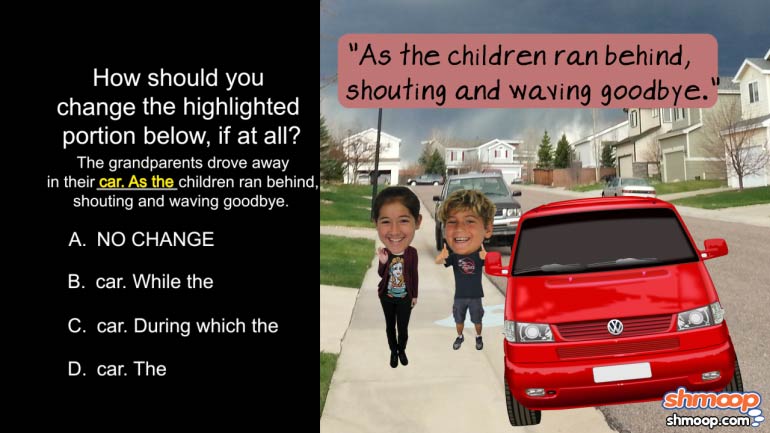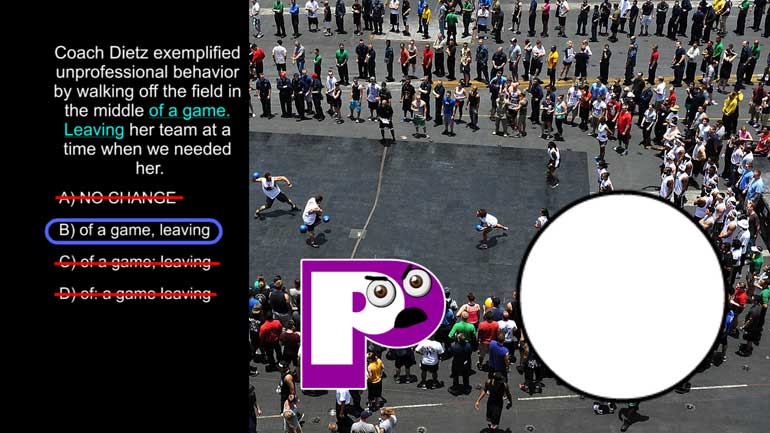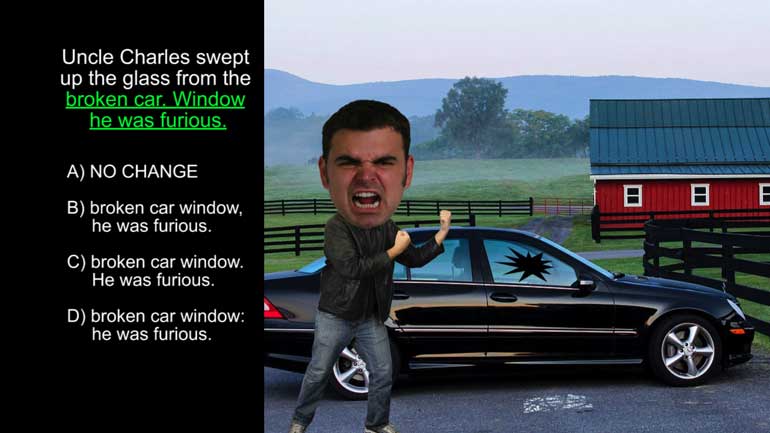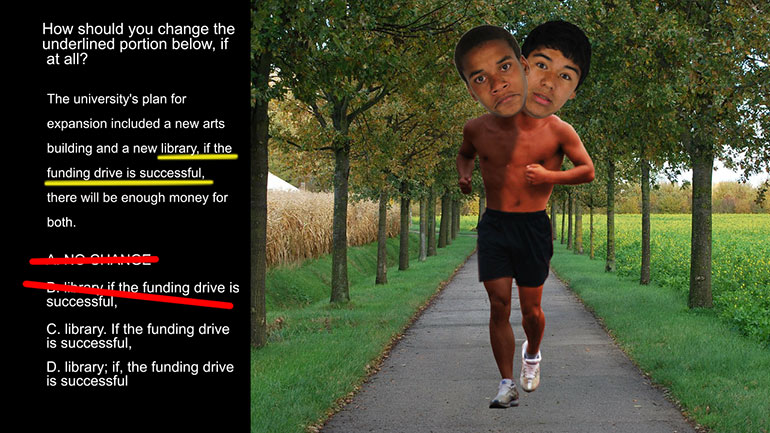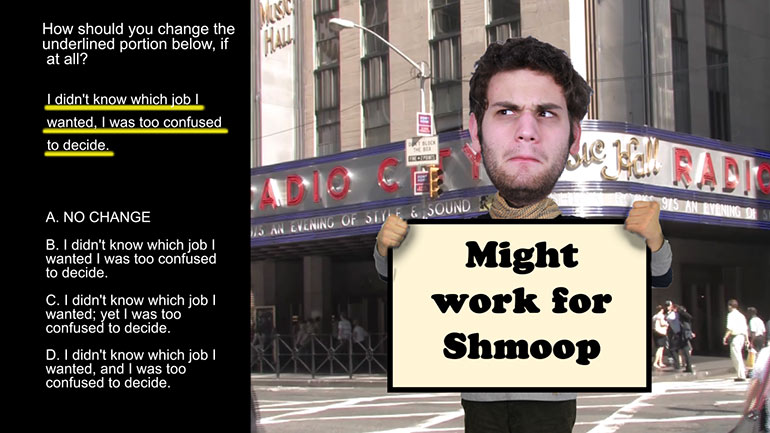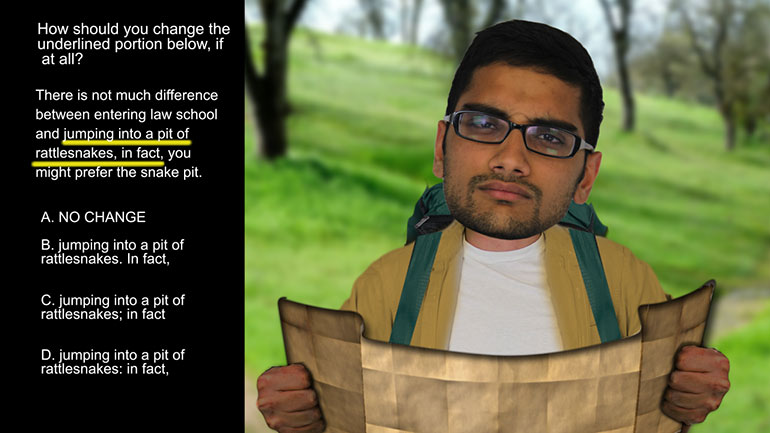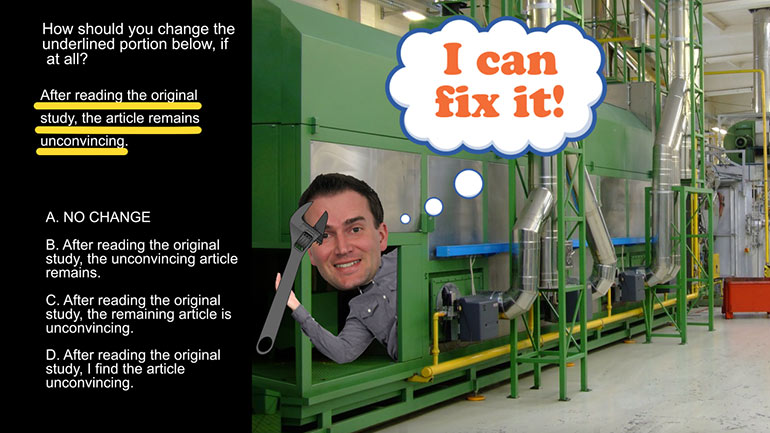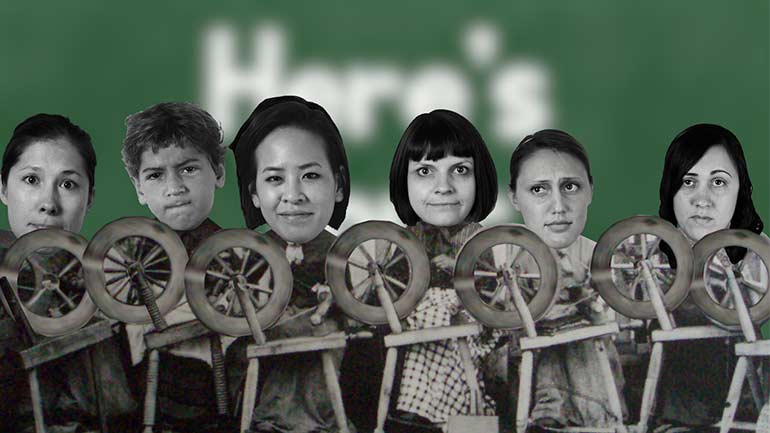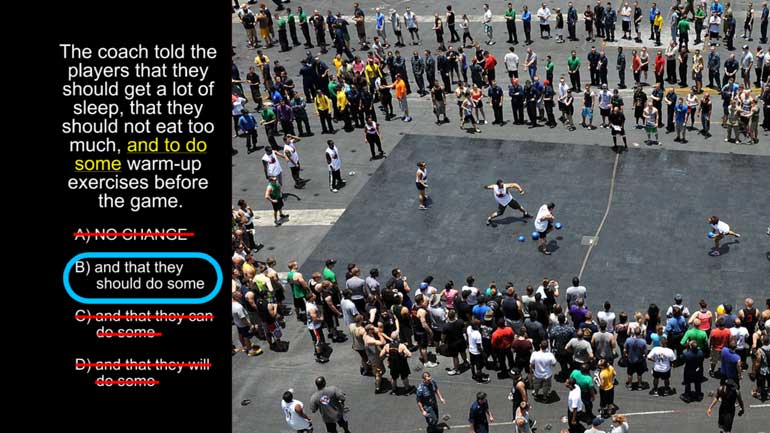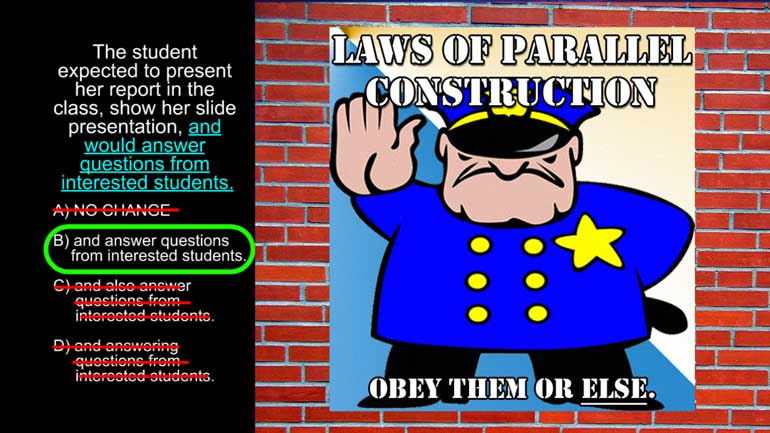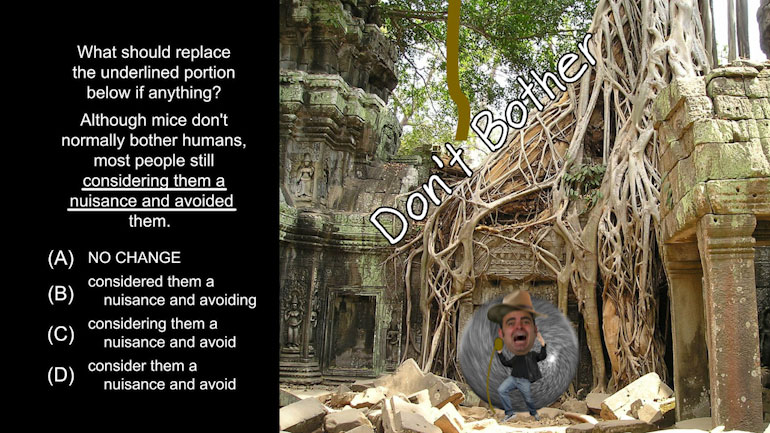ShmoopTube
Where Monty Python meets your 10th grade teacher.
Search Thousands of Shmoop Videos
Playlist ACT® English: Sentence Structure 25 videos
ACT English: Sentence Structure Drill 1, Problem 1. Properly punctuating dependent clauses.
ACT English: Sentence Structure Drill 1, Problem 2. What punctuation do we need between these clauses?
ACT English: Sentence Structure Drill 1, Problem 3. Proper word choice for independent clauses.
ACT English 5.3 Sentence Structure 284 Views
Share It!
Description:
In this ACT English drill question, figure out if the underlined segment requires a correction or not.
Transcript
- 00:03
Here’s your Shmoop du jour, brought to you by caveman musicians.
- 00:08
The real inventors of rock and roll.
- 00:10
How should you change the underlined portion below, if at all?
- 00:13
Evidence about how musicians played the instrument comes from ancient wall paintings.?
- 00:25
We’ll jump right in here and eliminate choice (C), which doesn’t use the proper verb form--
Full Transcript
- 00:29
a crime for which the verb police have stiff penalties.
- 00:32
The auxiliary verb “has” is forbidden to hang out with the verb “came”
- 00:37
on pain of...well...being incomprehensible.
- 00:40
“Has” is meant to be used when creating the present perfect tense.
- 00:44
The correct combination here would be “has come” not “came,” thus (C) is incorrect.
- 00:50
Choice (D) gives us “had come,” which is in the past perfect tense.
- 00:54
This is incorrect because the past perfect is used to compare two things that have happened
- 00:59
in the past.
- 01:01
If it were trying to tell us that a caveman had invented rock and roll right before he’d
- 01:05
invented the art of painting, then all would be good, but… that’s not what’s going on here.
- 01:09
So we're left with (A) and (B). No doubt, these two are a little tough to choose between.
- 01:14
The only other verb in the sentence is “played,” which is in the past tense.
- 01:18
This might lead us to choose choice (B). “Came” is in the past tense like “played,” right?
- 01:24
Hmm, something still seems fishy…
- 01:26
Choice (A) uses “comes,” which is in the present tense. This is actually the right
- 01:30
answer since the evidence here doesn't refer to a specific discovery or idea.
- 01:35
When this is the case it’s best to use the present tense to convey the idea that evidence
- 01:39
in general comes from this source.
- 01:41
Quick tip: Evidence found in ancient wall paintings is usually not admissible in court.
- 01:45
This loophole helped Grog the Caveman dodge an “assault by clubbing” rap…
Related Videos
ACT English: Punctuation Drill 2, Problem 2. Where should the semi-colon be placed?
ACT English: Punctuation Drill 3, Problem 1. How should this sentence be changed so that it is grammatically correct?
ACT English: Punctuation Drill 3, Problem 2. How should we properly hyphenate the words in this sentence?
ACT English: Punctuation Drill 3, Problem 4. Which choice best formats this list of items?
ACT English: Punctuation Drill 2, Problem 1. Which choice of punctuation best completes the sentence?
